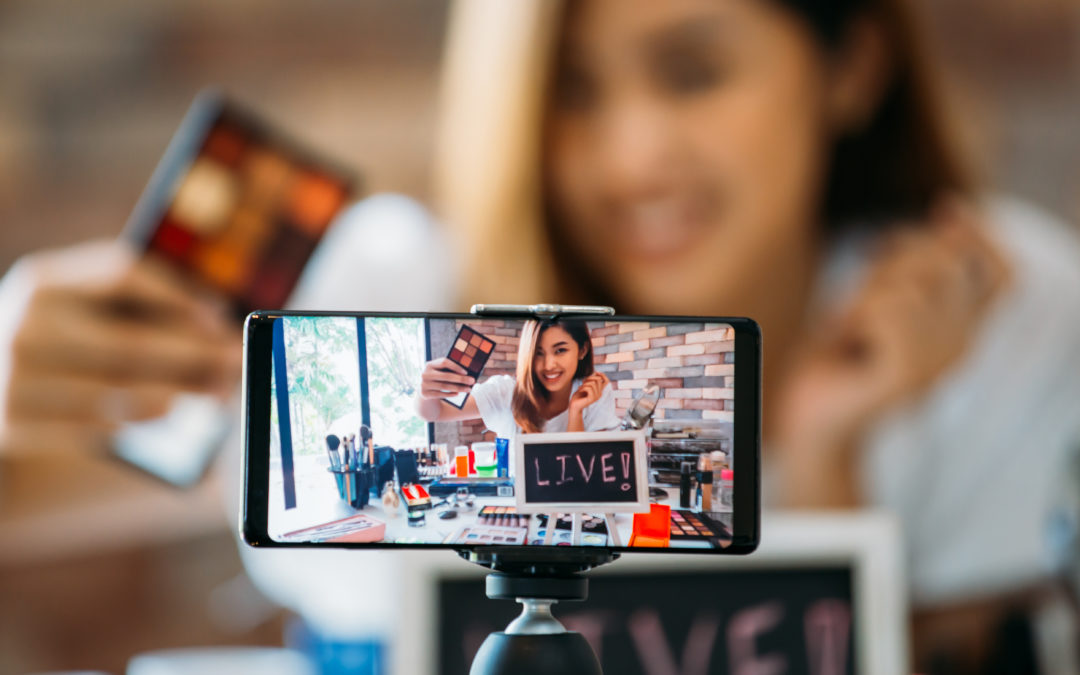Back in Jan 2020 (that month DID happen! seriously!), I wrote an article about consumer to consumer influence published on Forbes.com.
Since everything that happened in 2020 only makes authenticity and community more important than ever, I want to mention a few important principles in interacting with Gen Z.
Gen Z as Brand Advocates
Gen Z Americans are effective brand advocates, in the same way other generations trusted their friends and family above all other sources. The difference is, these consumers live in a channel-agnostic reality, and they move from recommendation to purchase in a previously unmet speed. Therefore, a recommendation from a friend can instantly convert into a purchase. Another difference is that Gen Z consumers have a huge variety of platforms where they can share their enthusiasm of brands, or lack thereof. The rate of content shareability is unprecedented, and consumers like to feel that they are influential and helpful, enabling brands to encourage their sincere recommendations and reward them for sharing their reviews with friends.
The Importance of Content Authenticity
Authentic content is content that is organic to the creator, and not externally imposed upon him/her. Gen Z consumers will detect a lack of authenticity and lose their trust in the creator/influencer.
The criteria for authentic content:
- Passion – something the creator (whether a person or a brand) is truly passionate about, for example, speaks to the creator’s values and beliefs, or solves a problem in the creator’s life. Passion cannot be faked, but it is infectious. Brands can share their own passion with the creator by explaining why the brand’s values are in line with those of the creator’s, why they developed the product or service and how it is different than other solutions.
- Knowledge – the creator needs to show knowledge and expertise in the matter, whether from self-experimentation, professional experience, or even theoretical research. Brands can empower the influencers beyond just inviting them to experience and experiment with their propositions, by providing them with exclusive information and “behind the scenes” view that will differentiate the influencer from others.
- Originality – authentic content has to be engaging, high-quality original content. Copying content can not only be considered as inauthentic, but can also enrage young consumers, who look for fairness in content distribution.
In Creators We Trust
Gen Z consumers trust influencers at a much higher rate than other generations, according to many reports. Whatever the specific rate is, it is important to remember the following:
– “traditional” influencers – mainly, celebrities/models – are often perceived as inauthentic. If their claim to fame is being beautiful / wealthy / famous, they will not be regarded as creators of authentic content, so while the level of interest in their lives might be high – the level of engagement and influence will be low.
– Second, consumers are much more influenced by people they believe to be “like them”, either at the ethnic or social/ economical level, or in regards to shared interests and values.
– Third, unethical behavior in previous influencer marketing practice caused consumers to be suspicious of paid content, and mega-influencers are now perceived as another advertising platform – can help for the discovery and awareness stage, but doesn’t necessarily drive consideration.
Notes for Marketers
In working with mega-influencers, brands should consider them as an awareness platform similar to other advertising channels, rather than as a tool to promote brand advocacy and consideration. The brands should then consider the entire path to purchase, to provide a “reason to believe”, via content, sampling, couponing etc.
There are, still, mega-influencers who effectively influence consumers as well – such as gamers and YouTubers. With them, it is important to create collaborations, exclusive product “drops”, and other co-creation tactics where the brand is a platform, expanding the influencer’s reach online and “In Real Life” (IRL), and helping the influencer monetize his/her influence.
Brands are now working with micro and even “nano influencers”, as smaller circles of influence enjoy higher trust – as they often generate a real-life conversation rather than a one-way conversation (i.e., brand to consumer, through the mega-influencer). But it is important for brands to understand that it is only a matter of time until they would have to drive influence at the single consumer level. Gen Z enjoys a huge variety of social media, communities, apps and e-commerce platforms, that are mushrooming everywhere. The more the platform is tailored to the consumer’s niche, sub-culture, or hobby (from stickers to sneakers…), the more it engages the consumer. This is disruptive for marketers: many of the platforms are here today – gone tomorrow; and working with niches consumes resources and efforts. Therefore, brands should be thinking beyond the “platform” level and rather, create a strategy that rewards a single consumer at any platform he/she chooses to research, discover, or shop on, online or “IRL”.
I believe establishing authentic relationships with Gen Z consumers depends first and foremost on the authenticity of the brand. Gen Z consumers are, as a generation, mindful and ethical. They seek novel experiences like any young people before them – but unlike other generations, they are re-considering the norms and paradigms their parents lived by.
Brands have to realize that they have an opportunity to approach these consumers by connecting to people who matter to them – mega-gamers, YouTubers, opinion leaders, artists, and other creators, as long as brands don’t force this relationship, but find a true connection with the creator. When approaching creators, brands should bear in mind that it’s the creator’s party, not theirs; and neither the creator, nor the brand, will benefit from out-of-context content or ingenuine comments.
More on the subject by (and about) Schieber Research:
Hamutal Schieber – Licensing Week
Hamutal’s Baruch College lecture on Ethics and Influencers
Hamutal’s Export Institute talk – Hebrew presentation

